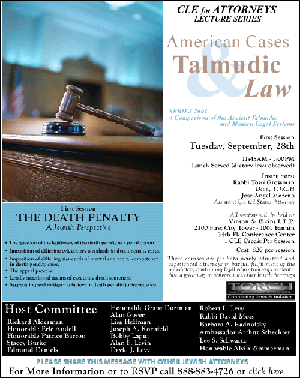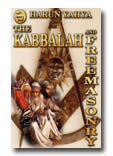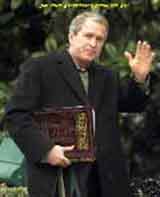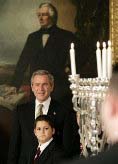
(Solomons Temple. Original picture published by Jerry Goldin at solomonstemple.com, since removed from the web.)
 http://nord.twu.net/acl/talmudiclaw.html
http://nord.twu.net/acl/talmudiclaw.html|
"Lacking a high school diploma, Etzioni had difficulty finding a university that would admit him after the war. Luckily, Martin Buber was looking for students to attend his new institute. In addition to studying Kabbalah with Gershon Scholem, Etzioni worked with Buber himself, and was profoundly influenced by the philosopher's notion of "dialogue" ("a give-and-take during which people open up and reach each other profoundly"), as well as his famous distinction between "I-Thou" relationships (treating others as fellow human beings) and "I-It" relationships (treating others as objects). Later, while studying sociology at Hebrew University, Etzioni discovered the concept of "anomie," the condition of spiritual aimlessness that Durkheim argued was the result of modernity's loss of social fabric. The essential concepts of communitarianism were in place." (The Everything Expert: A Review of Amitai Etzioni's My Brother's Keeper by Robert Boynton in The Nation, July 14, 2003.) {Boynton tells us "his adopted name was created by fusing the Hebrew words "truth" (emet), "tree" (etz) and "Israel" (Zion)-". The Kaballah is a "truth tree." Buber's dialogues were based in the Hegelian dialectic. Buber's theory was also the foundation for Nazi funded research that substantiates modern anthropology.} |
 Torah 101 explains: "In addition to the written scriptures we have an "Oral Torah", a tradition explaining what the Five Books of Moses mean and how to interpret them and apply the Laws. Orthodox Jews believe God taught the Oral Torah to Moses, and he taught it to others, and others taught it to others down to the present day. This tradition was maintained in oral form only until about the 2d century C.E., when much of the oral law was compiled and written down in a document called the Mishnah.
"Over the next few centuries, authoritative commentaries elaborating on the Mishnah and recording the rest of the oral law were written down in Israel and Babylon. These additional commentaries are known as the Tosefta, Mekhileta, Sifra, Sifre, Jerusalem Talmud, and Babylonian Talmud. The last was completed at about 500 C.E.
"The two largest works are the Jerusalem Talmud and the Babylonian Talmud. The Babylonian one is more comprehensive, and is the one most people mean when they refer to The Talmud.
The Mishnah is divided into six sections called sedarim (in English, orders). Each seder contains one or more divisions called masekhtot (in English, tractates). There are 63 masekhtot in the Mishnah. Most, though not all, of these masekhtot have been addressed in the Talmud. Although these divisions seem to indicate subject matter, it is important to note that the Mishnah and the Talmud tend to engage in quite a bit of free-association, thus widely diverse subjects may be discussed in a seder or masekhtah..."
Torah 101 explains: "In addition to the written scriptures we have an "Oral Torah", a tradition explaining what the Five Books of Moses mean and how to interpret them and apply the Laws. Orthodox Jews believe God taught the Oral Torah to Moses, and he taught it to others, and others taught it to others down to the present day. This tradition was maintained in oral form only until about the 2d century C.E., when much of the oral law was compiled and written down in a document called the Mishnah.
"Over the next few centuries, authoritative commentaries elaborating on the Mishnah and recording the rest of the oral law were written down in Israel and Babylon. These additional commentaries are known as the Tosefta, Mekhileta, Sifra, Sifre, Jerusalem Talmud, and Babylonian Talmud. The last was completed at about 500 C.E.
"The two largest works are the Jerusalem Talmud and the Babylonian Talmud. The Babylonian one is more comprehensive, and is the one most people mean when they refer to The Talmud.
The Mishnah is divided into six sections called sedarim (in English, orders). Each seder contains one or more divisions called masekhtot (in English, tractates). There are 63 masekhtot in the Mishnah. Most, though not all, of these masekhtot have been addressed in the Talmud. Although these divisions seem to indicate subject matter, it is important to note that the Mishnah and the Talmud tend to engage in quite a bit of free-association, thus widely diverse subjects may be discussed in a seder or masekhtah..."|
"A clear halacha (religious rule) stated in the Mishneh Torah of the Rambam (Jewish sage Maimonides) explicitly forbids gentiles, like Jews, from celebrating any religious holidays not found in Torah or rabbinical tradition. The rule further requires all Jews to be involved in teaching gentiles this rule, which applies to such Christian holidays as Christmas, Easter, and Halloween. "The Lubavitcher Rebbe has publicly taught this and related halachic rules, and has made it clear that, since there are no opinions in Torah to contradict them, such rules apply to us today. The Rebbe has further instructed Jews that whenever we see a project or campaign that must be done, or any action that is needed, we must not ask permission from any authority - be it a Chabad representative, a beis din (Jewish court), a Rav (rabbinical judge), or whomever - but rather we must take immediate action on our own initiative (see, for example, the Rebbe's Yiddish-language speech published in Likkutei Sichos, vol. 2, Parshas Pinchas, pp. 342-344; also sichos of motzoei Shabbos Chayei Sarah, 24 MarCheshvan 5738, and 10 Shvat, 5738). "In accordance with these guidelines, members of JAHG-USA wrote a flier promoting our campaign to abolish Christmas celebration; it was aimed at recruiting Jewish support and featured key quotations from Maimonides, the Rebbe, and other sources. In November 2001, two volunteers posted this flier in a major Chabad synagogue in Los Angeles; when some members of the congregation repeatedly tore down the fliers with the holy Torah quotations, the volunteers instead distributed the fliers throughout the neighborhood to Jewish homes." quote from http://www.noahide.com/cunin.htm |
|
"Before you know where you're going, you have to know where you came from. And Jewish law is the basis of our legal system in America." |
|
"The launch of the Washington-based National Institute for Judaic Law was marked Tuesday night with a kosher dinner at the Supreme Court
attended by 200 people, including three Supreme Court Justices - Ruth
Bader Ginsberg, Stephen Breyer, and Antonin Scalia.
US President George W. Bush sent greetings and applauded the institute for promoting an "understanding of Judaism's rich tradition of legal thought." "As we face new challenges and welcome new opportunities, our society must continue to promote good character and strong values. Through the study and teaching of Jewish law and philosophy you are contributing to a growing culture of service, citizenship, and responsibility in America," Bush wrote." |

|
"While we have had complete silence and acquiecence on the part of the ACLU concerning the establishment of the "Noahide Laws" as our official state religion, we hear them talk loudly against the posting of the Ten Commandments in a courthouse as a part of a display about the foundation of our legal system. According to the ACLU, the displaying of the Ten Commandments in a public courthouse, even in the context of their being among many documents that represent the development of the legal system of our Federal Goverhment, makes the statement that a specific religion is seen as a part of the foundation of our western civilization. Because of this, the display is promoting this religion, which is a violation of our First Amendment, and so is unacceptable." This following statement was found on the ACLU website: "The Ten Commandments advocate believing in God, observing the Sabbath and not worshipping idols," Friedman added, noting that different faiths have different versions of the document. "Those are religious beliefs that should be left to each individual. Especially in a courthouse, people should not be made to feel like outsiders in their own community because they may not share the prevailing religious view." ..."I would like to know why the ACLU, our press, and our politicians have remained silent for fourteen years about the passage of Public Bill 102-14, and this obvious violation of our First Amendment guarantee of our right to worship God as we choose and the guarantee that our government will not establish a state religion, while at the same time the ACLU attacks legitimate public expressions and displays of religious-oriented material, such as the Ten Commandments in a courthouse, and Nativity scenes at Christmas. " |
|
"Public interest law includes legal aid to the poor, government service, and work for nonprofit organizations like those concerned with civil rights, the environment, children or the elderly... As a Yeshiva undergraduate, she majored in Judaic Studies, won a Judaic Studies Award, and served as Jewish Law Editor of the student newspaper. She received her bachelor's degree in January 1978 magna cum laude./ Kochen speaks Hebrew fluently. Before law school she pursued in-depth study of Talmudic law in Israel, and later worked as a law student intern for a lawyer in Tel Aviv." |
 AN OUTLINE OF THE HISTORY OF GAME THEORY, by Paul Walker, 1 April 1995. The Talmud is the first historical reference in the timeline for the Game Theory, going back to 0-500 AD. "In 1985, it was recognised that the Talmud anticipates the modern theory of cooperative games. Each solution corresponds to the nucleolus of an appropriately defined game."
AN OUTLINE OF THE HISTORY OF GAME THEORY, by Paul Walker, 1 April 1995. The Talmud is the first historical reference in the timeline for the Game Theory, going back to 0-500 AD. "In 1985, it was recognised that the Talmud anticipates the modern theory of cooperative games. Each solution corresponds to the nucleolus of an appropriately defined game."
|
"Qabalah" is the spelling generally used to indicate the use of Kabbalah as an occult and practical magical system. In it's modern form it is the creation (or adaptation) of Eliphas Levi, and even more so S. L. "MacGregor" Mathers, the co-founder of The Hermetic Order of the Golden Dawn. This was a magickal organisation which incorporated Judaic Kabbalah, Egyptology, Rosicrucianism, ritual magic, astrology, tarot, and the Indian tattwa system (as interpreted through Theosophy).The Qabalistic Tree by Jan Swanson. |
 {Update by Niki Raapana on November 26, 2006: This picture of Bush with the Talmud and the website I found it on may be fakes. I found this on Robert Lindsay's blog:
{Update by Niki Raapana on November 26, 2006: This picture of Bush with the Talmud and the website I found it on may be fakes. I found this on Robert Lindsay's blog: 